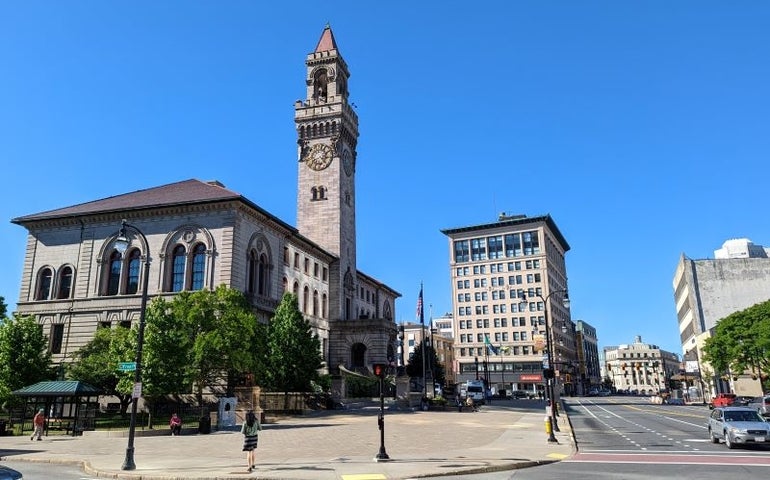The Worcester City Council voted to make the city’s inclusionary zoning policy into an ordinance on Tuesday. Any zoning applications for multifamily apartment projects submitted after that day –- May 9 – will be subject to the ordinance.
The policy was approved by the Worcester City Council in April after a more stringent proposal from the Worcester Together Affordable Housing Coalition was voted down. The vote took place amid demonstrations by affordable housing advocates.
Applications filed prior to Tuesday will not be subject to the ordinance provided the project is permitted within six months of filing, said Mark Borenstein, a land-use and real estate attorney and partner with Worcester law firm Bowditch & Dewey.
The ordinance applies to new construction, adaptive reuse projects, and expansion of an existing structure adding 12 or more dwelling units, according to the zoning ordinance amendment passed on Tuesday.
Developers will have the choice of setting aside 15% of the dwelling units for households earning less than 80% of the area median income, or 10% of the dwelling units for households making 60% of AMI as determined by the U.S. Department of Housing and Urban Development.
For example, a two-person household making less than $70,750 would be eligible at the 80% limit, while the same household making less than $53,040 would be eligible at the 60% limit, according to the 2022 HUD guidance.
Maximum rents would be set at 30% of the amount of gross income based on the relevant income restriction, including a HUD-determined utility allowance.
Units for sale would be priced at a level where households making the applicable income would be able to receive financing for a purchase.
The restriction would be effective for 30 years.
The affordable units will need to be distributed throughout the development rather than clumping them together and be the same in quality as market rate units within the development.
The mixture of the number of bedrooms within each unit (studios, one-, two-bedroom) must reflect the mixture among the whole of the development. Americans with Disabilities Act accessible units will reflect the same proportion of affordable units as the whole of the project.
Developers will be required to submit an affirmative marketing plan complying with federal and state fair housing laws, ensuring they do not selectively target tenants.
In lieu of affordability restrictions, developers can elect to make a payment equivalent to 3% of the total cost of the project to the Worcester Affordable Housing Trust Fund, which is overseen by a board of nine trustees.
Developers can also seek relief from some parking and density restrictions if they choose to make at least 5% of the units in a project affordable to people making less than 60% AMI.

